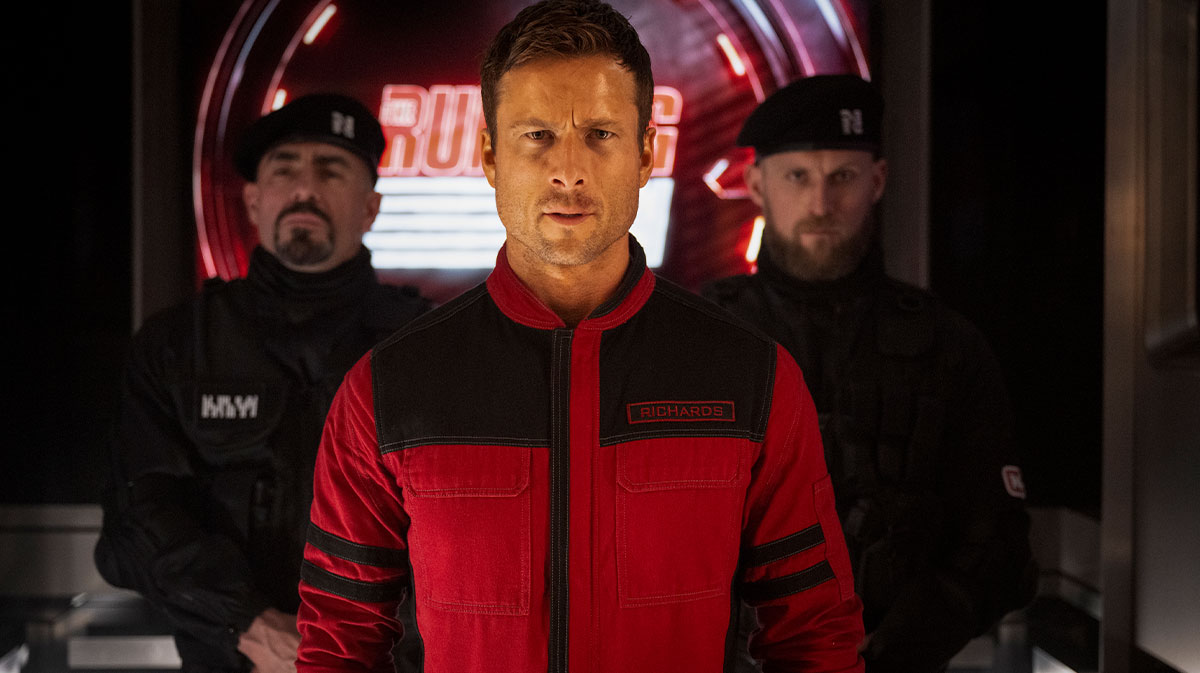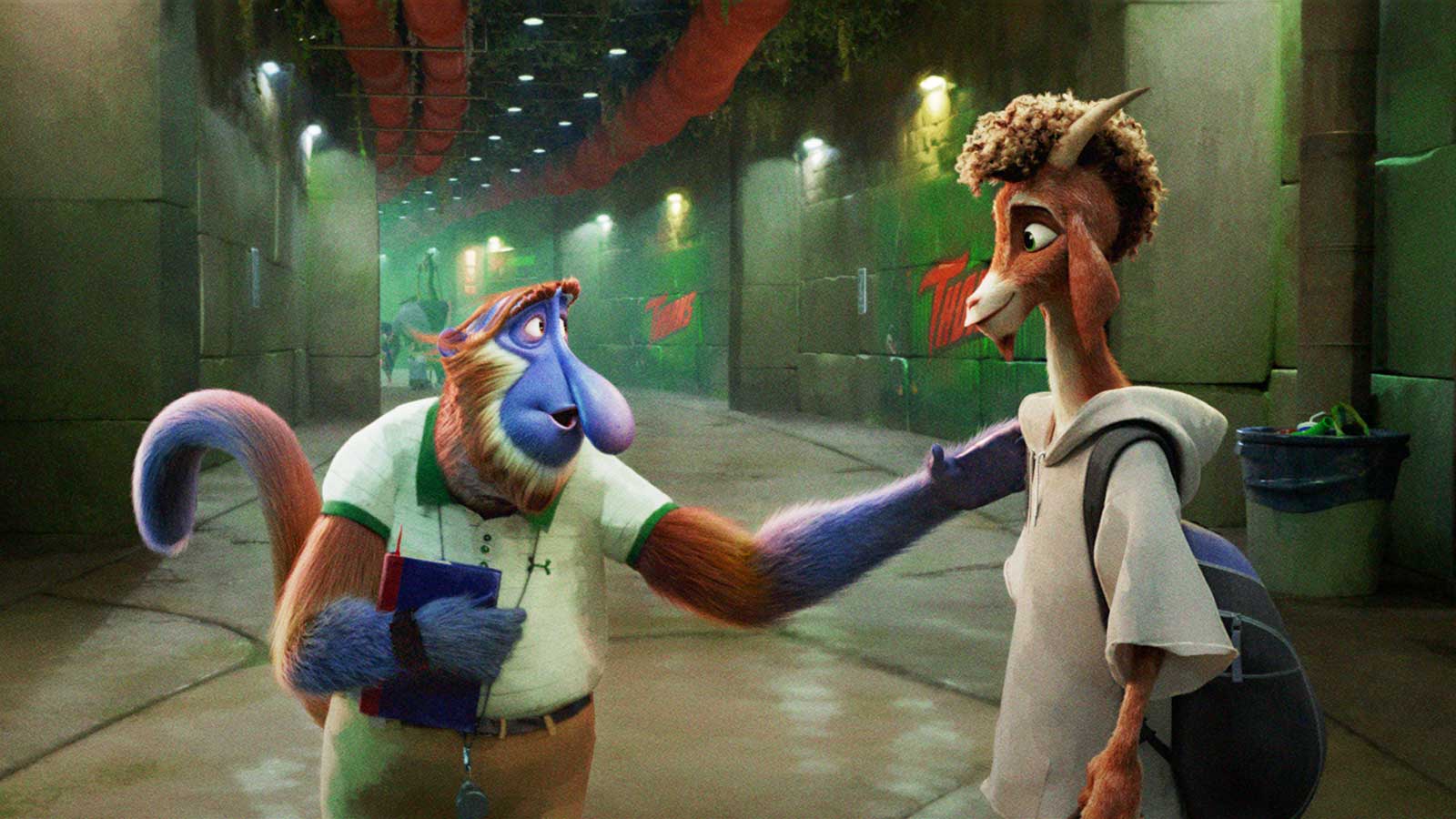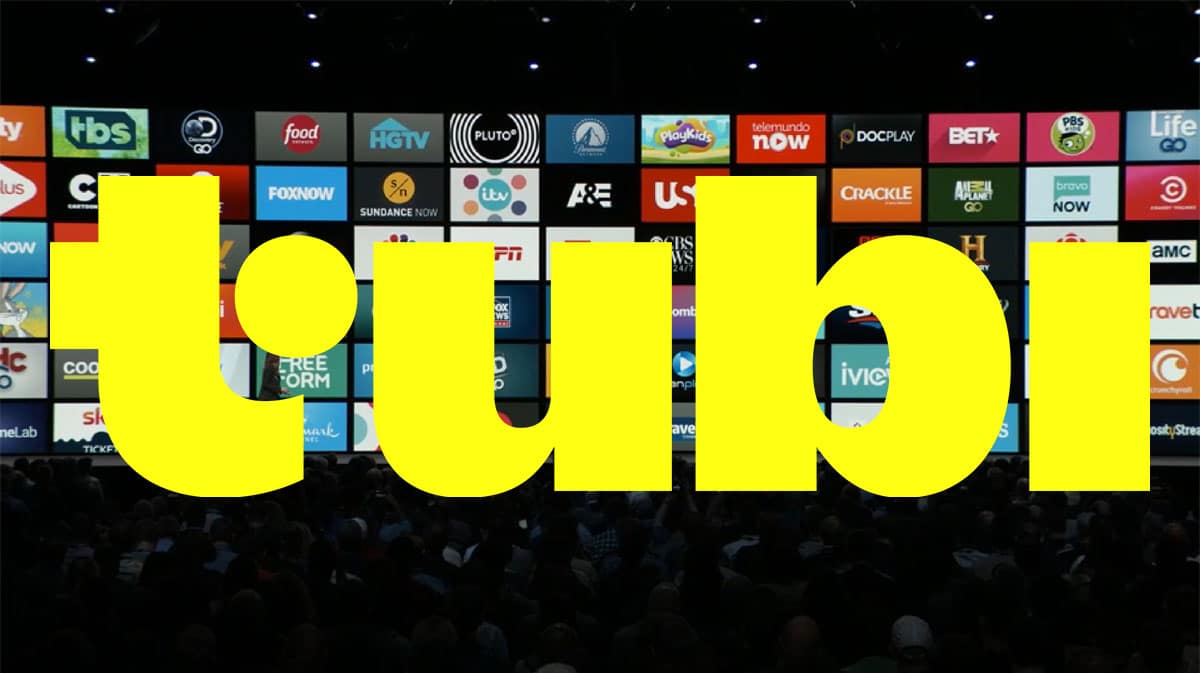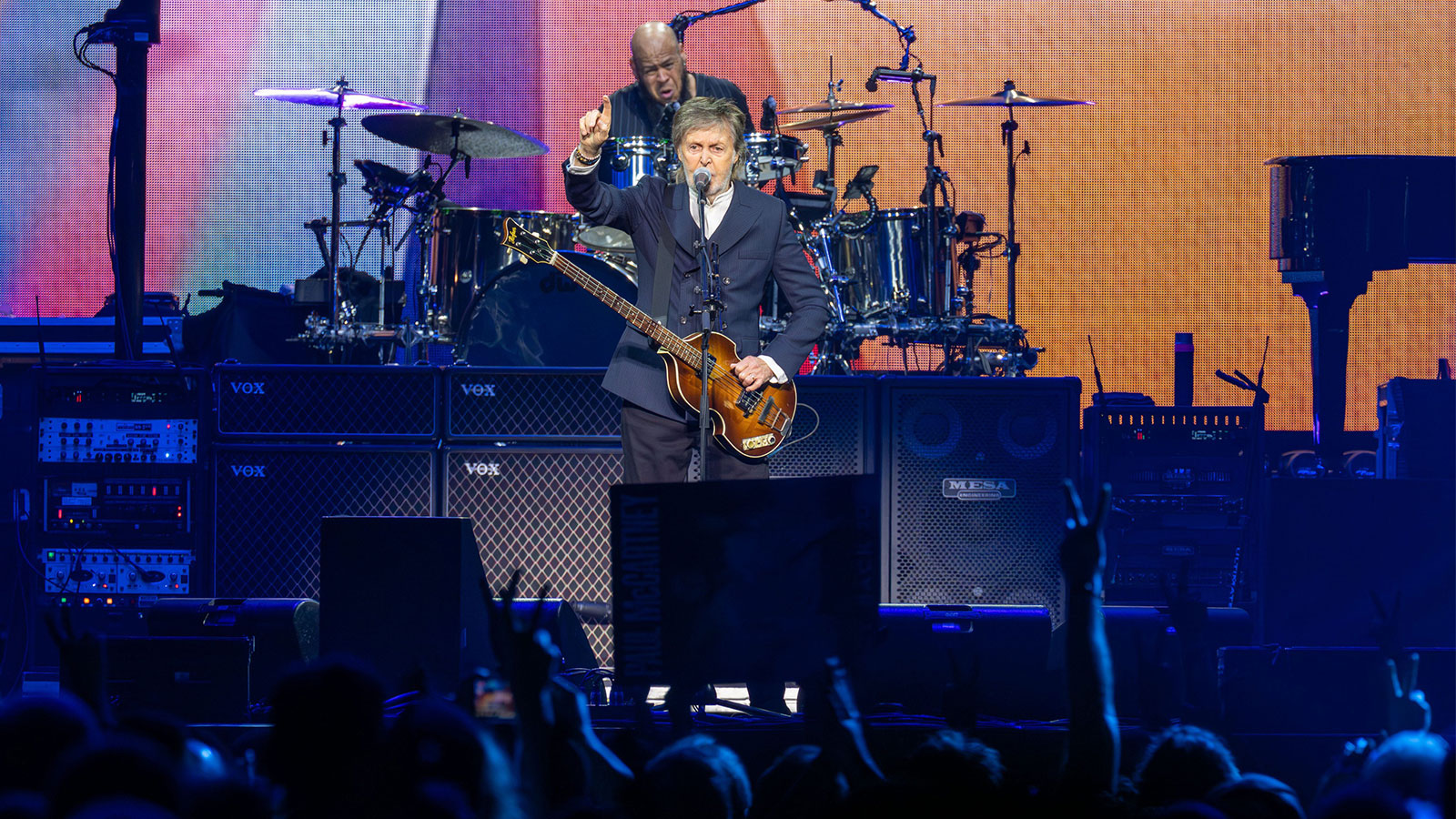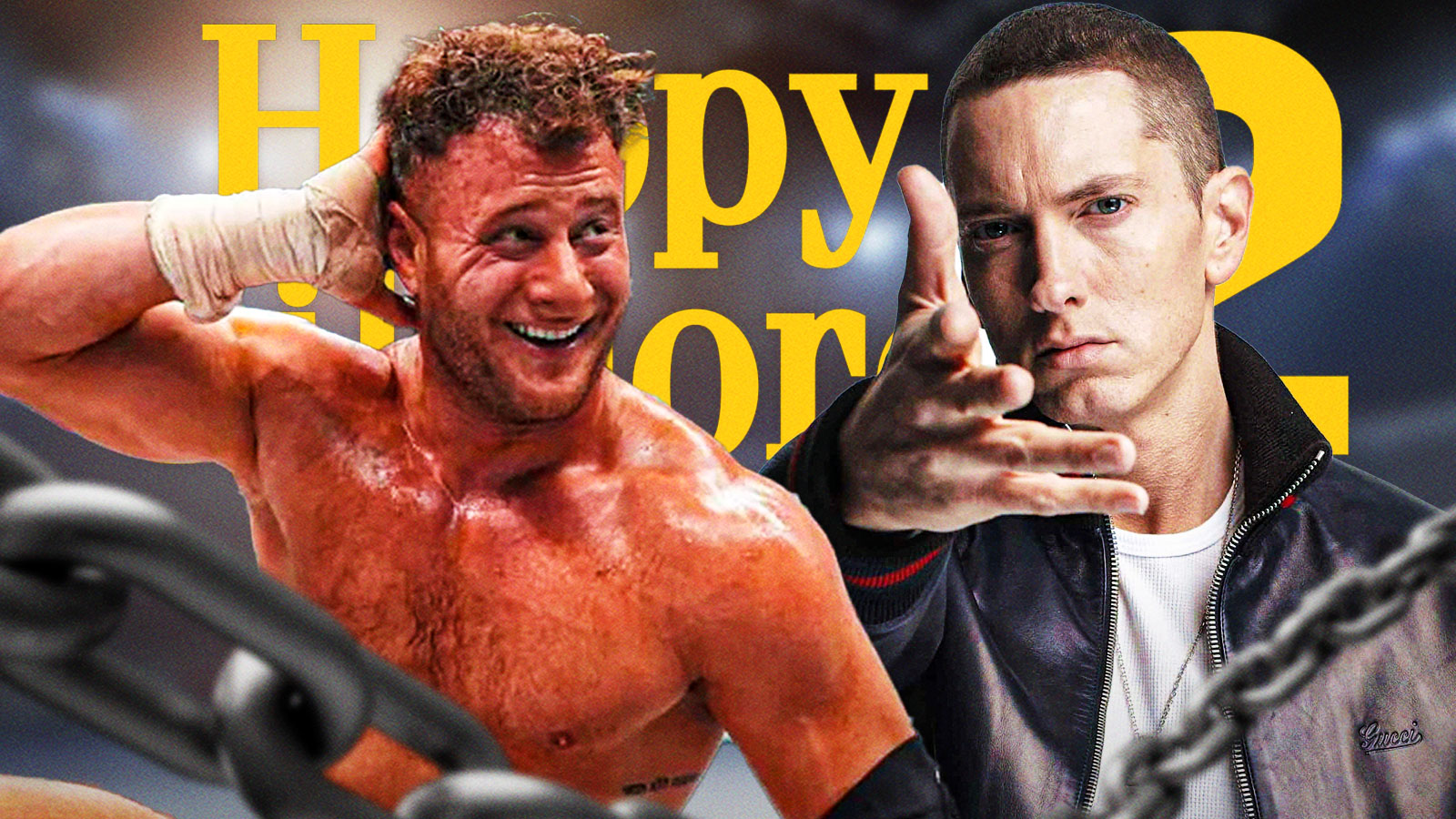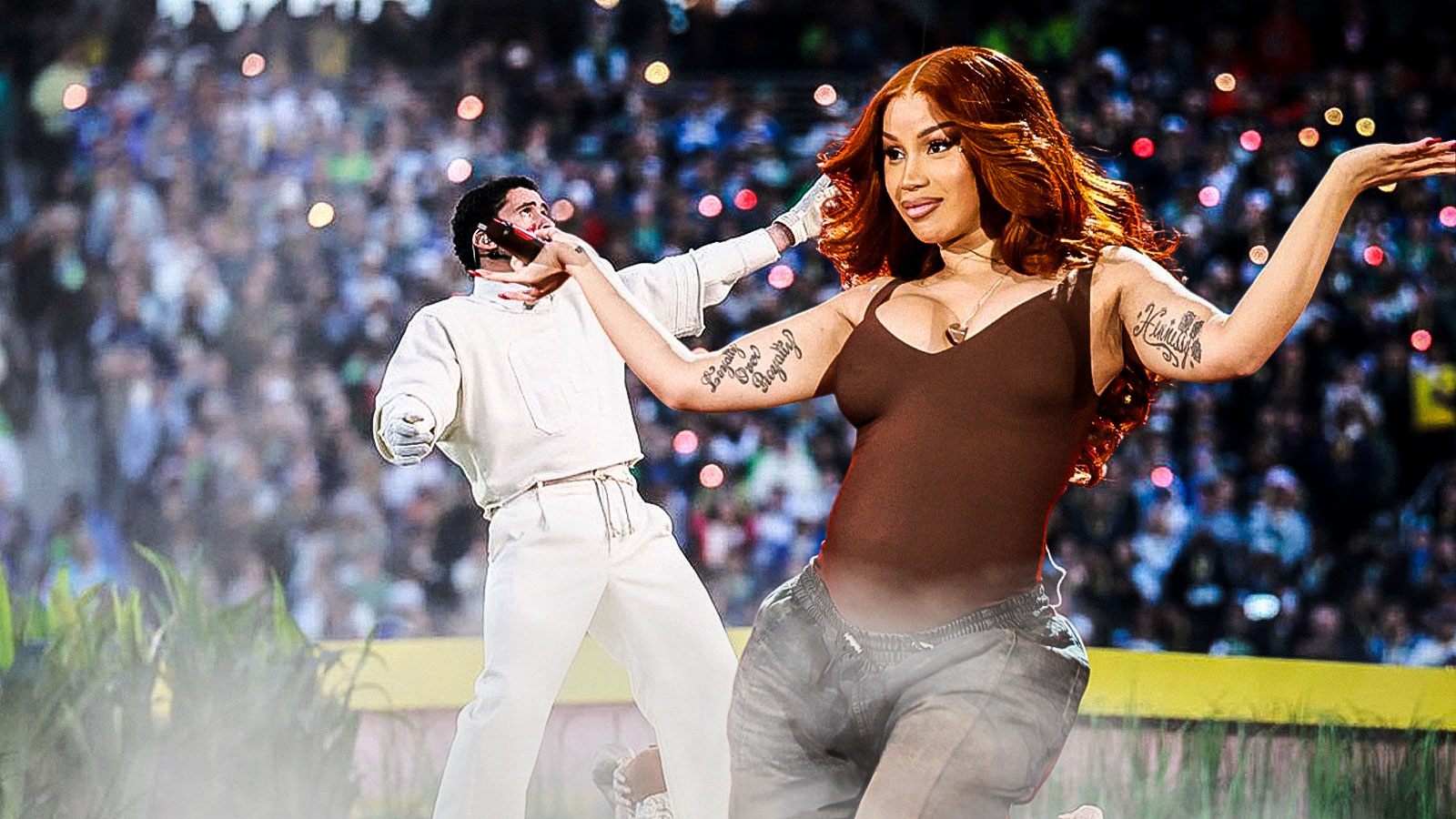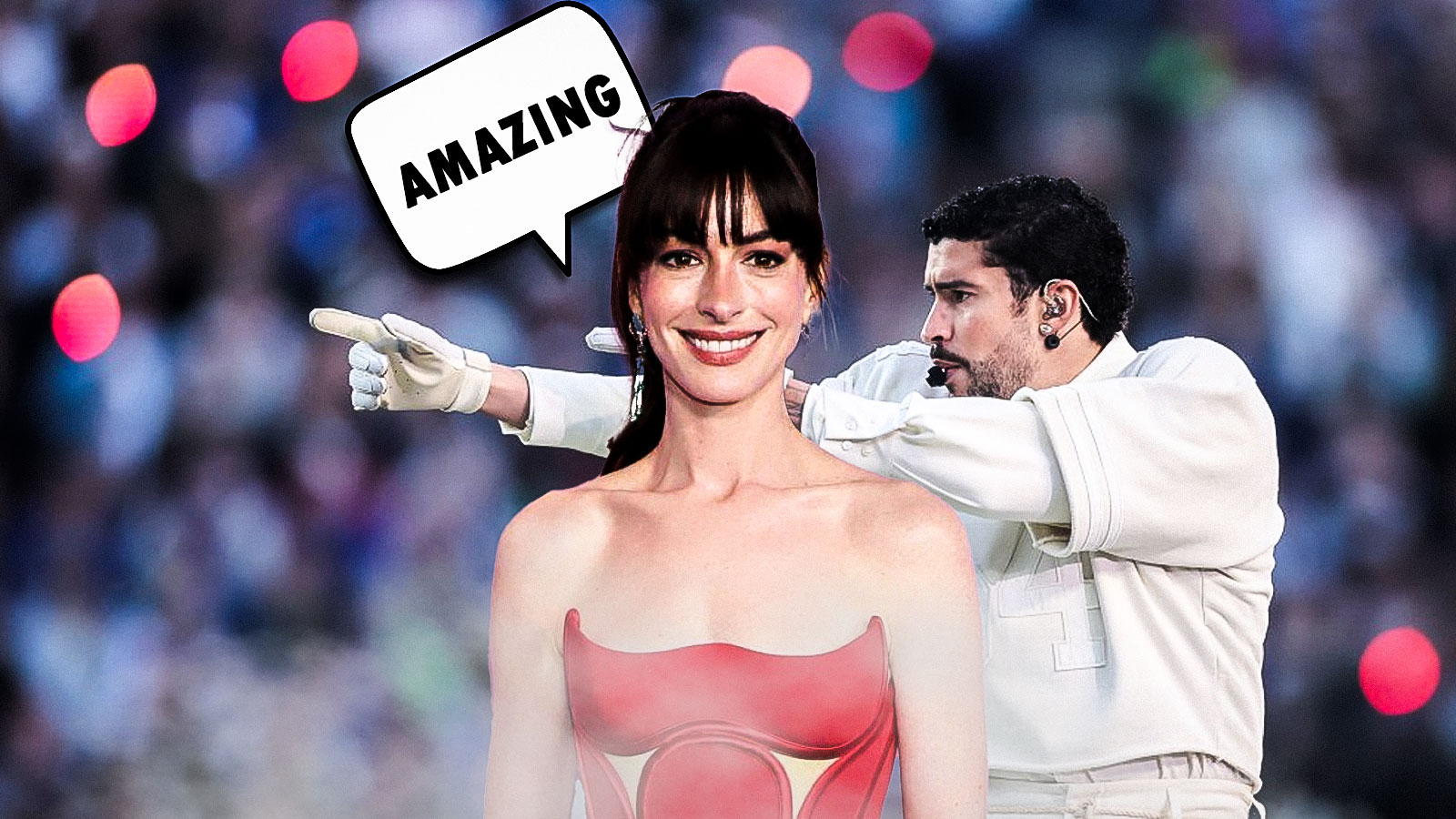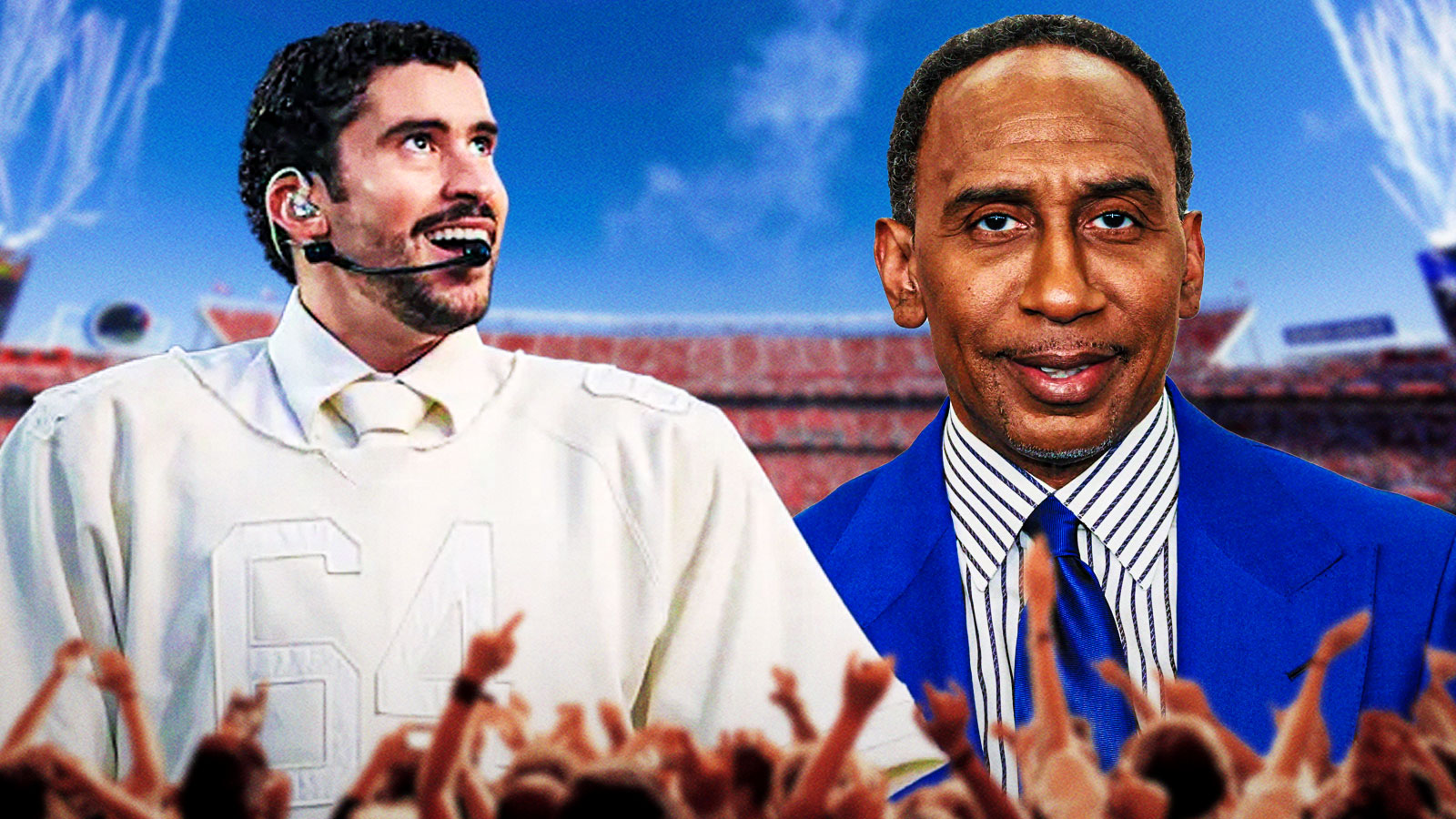There are adaptations, and then there are adaptations, which Edgar Wright's The Running Man — an adaptation of Stephen King's novel starring Glen Powell — fits under.
Sometimes, it feels like Hollywood is only comfortable with adapting (or, in this case, readapting) known IPs. Even franchises like the Mission: Impossible movie series, which has become a mammoth on its own, make you forget it's a reboot of a TV series.
It has been almost 40 years since Paul Michael Glaser's Running Man, starring Arnold Schwarzenegger, came out. Now, Wright is taking the second swing at adapting one of King's landmark novels.
This time around, with four decades' worth of newer technology behind it, Wright's Running Man becomes the definitive adaptation. Maybe it is a coincidence, maybe it's not, but The Running Man feels timelier than ever.
All of the recent talk about Bruce Springsteen's Nebraska (an album about losers who cannot escape their situations) may be part of this reading of Wright's adaptation, but his movie brings a new understanding to the material. The text is richer than ever in his hands.
Changes are made, of course, just like any great remake. However, most of the fat of some of the densest parts of the book are trimmed, and more drastic, Hollywood-ified changes take some of the cynicism of the original story out.
The Running Man is a thrilling watch, and Wright brings the story to life. Not to mention, Powell brings his natural charm to Ben Richards, shaving some of the hard shell off that he was written with.
What's The Running Man about, anyway?
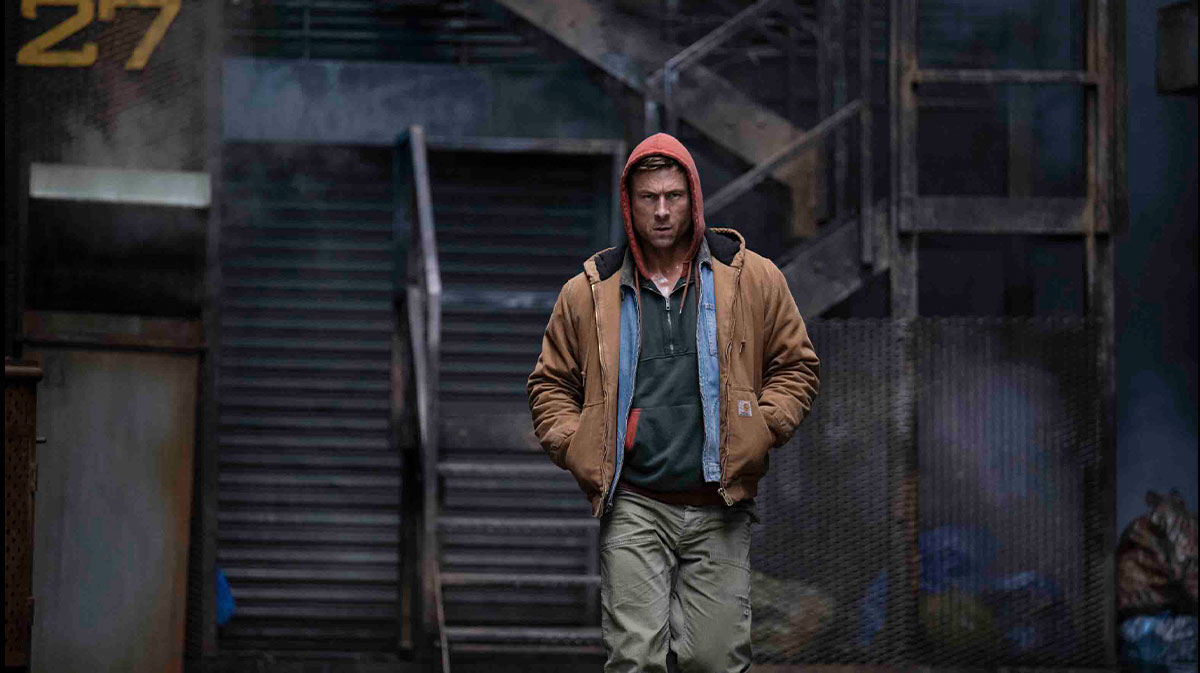
The Running Man takes place in an undisclosed, but futuristic year. Ben Richards (Glen Powell) is laid off and subsequently blacklisted from his blue-collar job at the start of the movie.
With a wife working a dead-end job and a sick daughter, Richards has no choice but to audition for the Games Network, which hosts a variety of games intended to give impoverished folks a chance at a small fortune.
These games range from Wheel of Fortune types to the Running Man, the Games Network's most popular show and a game that places three contestants on the run. If they last 30 days and outlive the hunters, they win $1 billion in their currency.
However, like a casino, the house always wins. No contestant has made it through 30 days. Even Richards knows the odds are stacked against him should he try out for it. Richards tells his daughter something along the lines of, “Don't worry, daddy's not that crazy,” upon seeing an ad for it.
When he's left with no other choice, he tries out for the Games Network. Ultimately, he is chosen for the Running Man competition. A desperate Richards takes a deal from Dan Killian, who is expertly played by Josh Brolin, the producer of the show. And he's off.
Glen Powell brings new life to Ben Richards
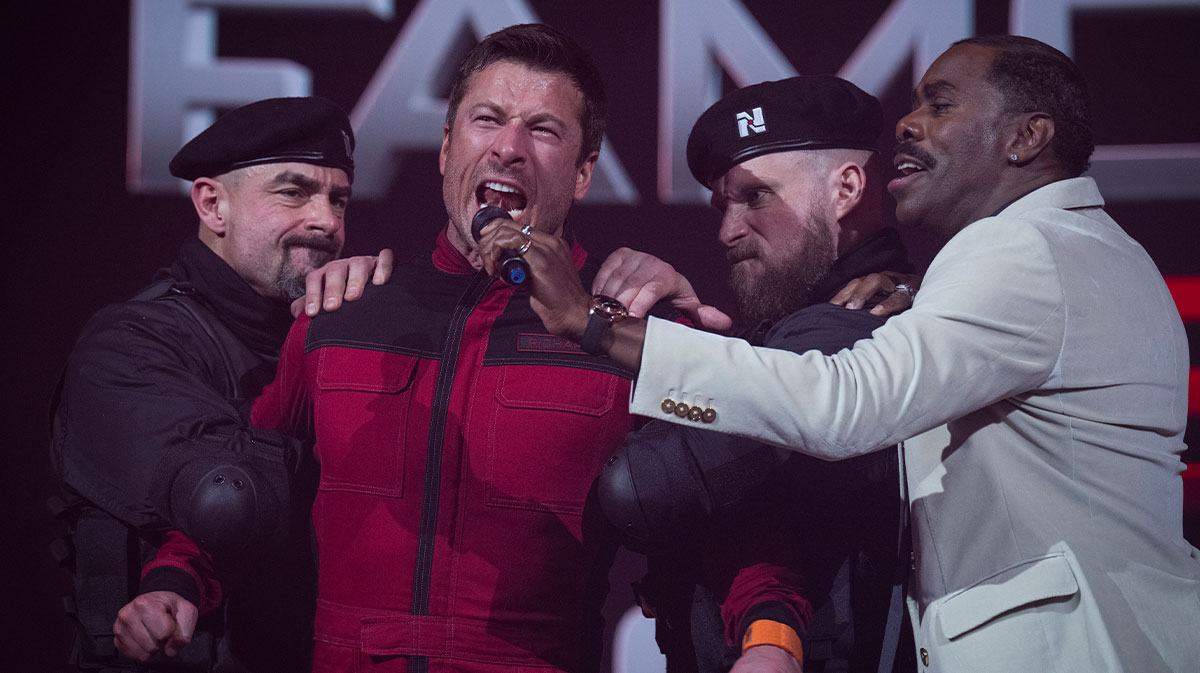
In King's novel, Richards is an unlikely protagonist. You won't root for him in the traditional sense. Of course, you want him to save his family, but he's willing to say or do anything to do so.
That same level of dedication is seen in Powell's portrayal, but he brings more charisma to the character. On one hand, it may not be exactly what you picture when reading the book. In the book, Richards comes off more like Rick Deckard from Blade Runner. He's a smart-talking jerk who is in it for his own motives. In The Running Man, Richards becomes a Springsteen-like figure to the blue-collar folks of Co-Op City (and America as a whole).
It's hard to blame Powell. He plays likable characters that are impossible to root against. Instead of making Richards an anti-hero of sorts, he is a sympathetic figure.
Powell's take on Richards makes for a better watch. He hits all the notes, from sadness to rage, with conviction. If he played it just as King wrote it, it'd feel like he was retreading his Top Gun: Maverick character.
At this point, it's impossible to deny Powell's star power. He has tried his hand at everything, and it has always worked (we'll ignore Devotion).
Is it strange that Powell has played two characters hidden under prosthetics in accents in the span of a month (see Chad Powers)? Perhaps. But we, the viewers, are on the winning end of that deal. He does an especially convincing job as an Irish priest in The Running Man.
Edgar Wright's changes to the book
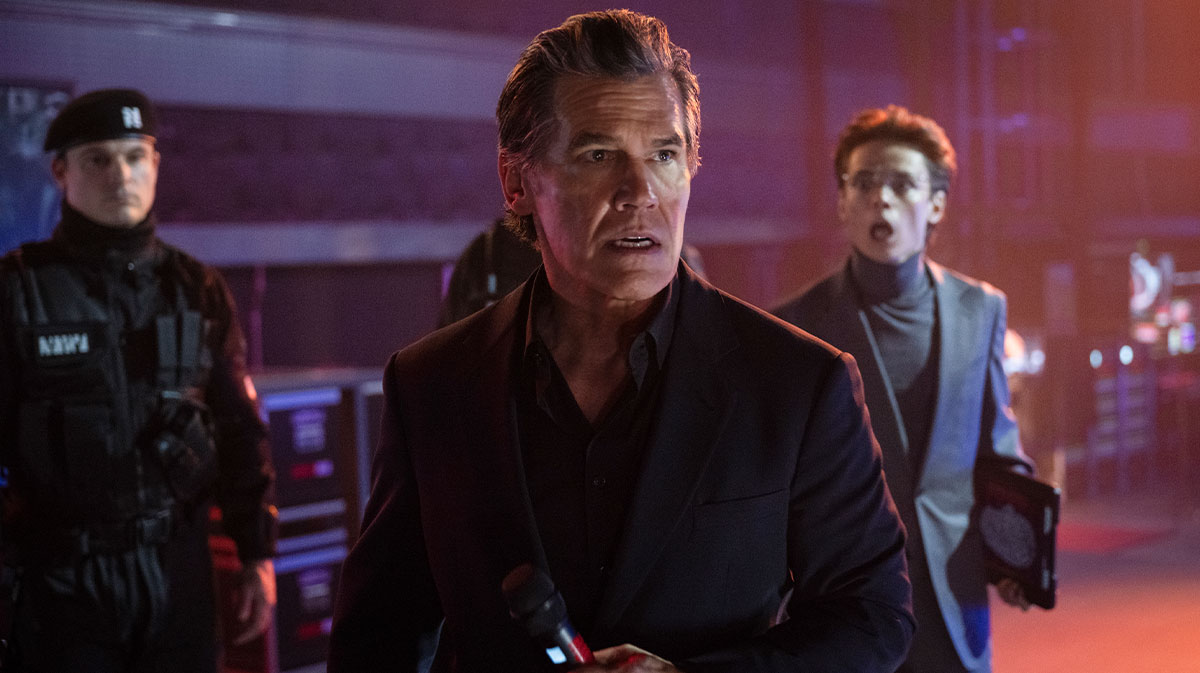
Having Richards as more of a likable character likely stemmed from Wright and Michael Bacall's writing. They are pretty faithful to the source material, but the changes they do make work.
There are some subtle changes and some big swings. Both work to equal effect. The most obvious change comes in the third act, and Powell's iteration of Richards is another one.
King is a very vivid writer, almost to a fault (anyone else read the opening pages of IT?). He knows how to write a scene that you can block in your head as you read it.
At times, it's as if Wright got into King's head, bringing the story to life as you'd picture it, reading The Running Man. It's incredible how the grimy apartments Richards stays in or the city streets he galavants on all feel straight out of the book.
Some of this is performance-driven. Powell is the lead actor, but Colman Domingo's portrayal of Bobby Thompson, the host of the in-universe Running Man TV show, is the most charismatic figure in the movie.
The role of Thompson would be tough for most actors to step into. Even Thompson knows it's a tall task to follow someone as explosive as Richards on a nightly basis. Domingo is one of the most versatile actors in Hollywood, and his Thompson toes the line between character and caricature.
He makes the most of his budget
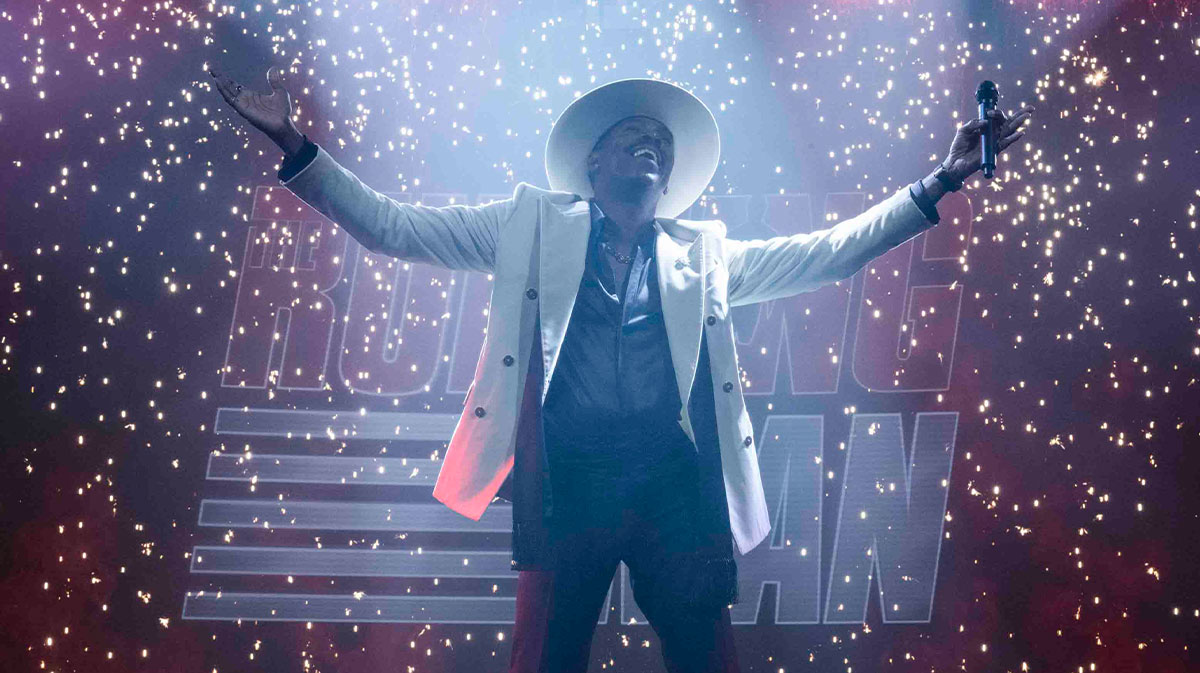
Either way, Wright directs what has to be his most expensive project since The Adventures of Tin-Tin with The Running Man. As of now, it's unknown how much Wright had to play with. Regardless, it looks great, especially for a blockbuster, and it's a lot more colorful than the drab imagery King's novel paints.
He has made a career out of his needle drops, though The Running Man doesn't necessarily lend itself to his usual dosage of them, and he has always had a knack for dynamic action sequences.
It's at its best when the chase becomes close-quarters. Scenes in an apartment building and a jet stand above the rest. Wright doesn't need rapid-fire camera movement or oners to get his point across. It almost feels as if Wright is improving upon his work in Baby Driver and Scott Pilgrim vs. the World.
The Running Man features a man on the run, so of course, it's going to move at a brisk pace. Wright doesn't focus on the things that don't matter, like Richards' uneasy encounter with a female Games Network employee before his tryout or every line of dialogue between him and the woman he holds hostage, Amelia Williams (played by CODA breakout Emilia Jones).
Adaptations don't have any obligation to match the source material word-for-word. The Godfather is one of the rare cases that works despite not deriving much (if at all) from its source material.
Making The Running Man appropriate for 2025
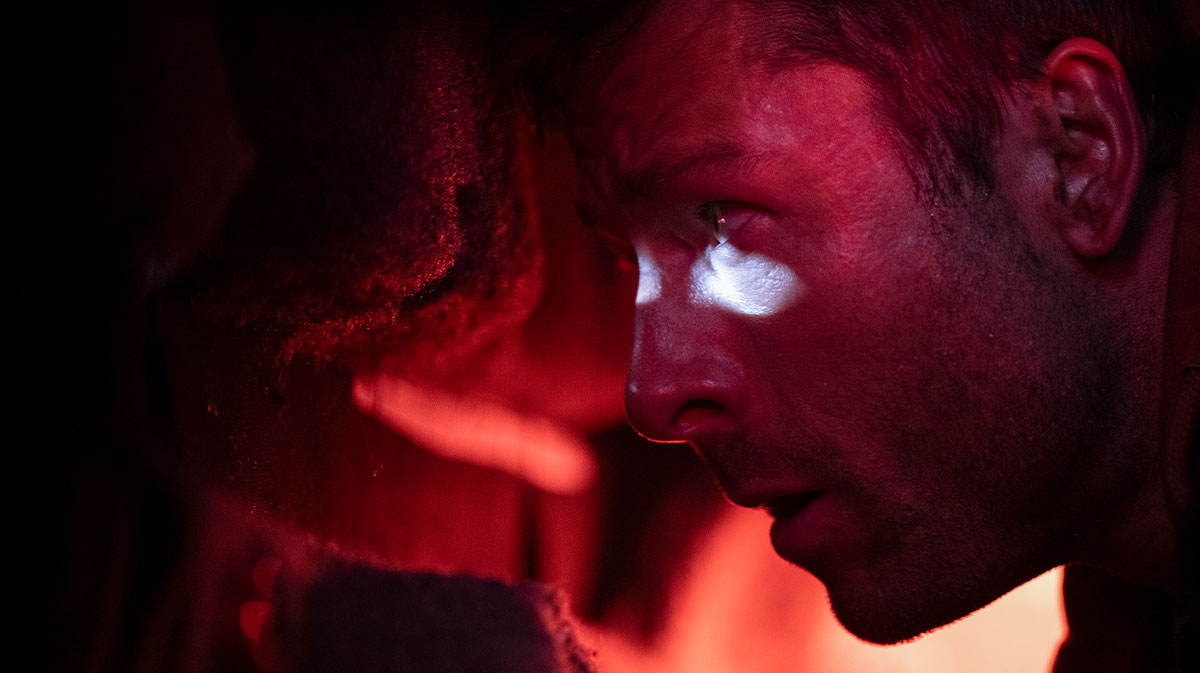
If a filmmaker is gonna remake a movie, regardless of how good or bad it was, they have to justify its existence. It has been nearly 40 years since the last Running Man movie, and Wright updated effortlessly to the modern age.
Once again, Wright and Bacall did a good job of adapting King's material and improving it. King's book came out in 1982, and times have changed. Certain elements have been updated to be politically correct in 2025, and others have evolved with the times (like the Meta Glasses-like technology people wear in The Running Man).
Some of the changes are subtle, like changing the verbiage (e.g., the term “maggot” is nowhere to be found). The source material also lends itself well to being adapted in 2025.
That is when the original novel takes place. Some of the technology in The Running Man is more advanced than what we have, but a lot of it is stuff we see out in the wild. Wireless earbuds, smart glasses, and self-driving cars are all seen in the movie.
Having mostly grounded technology helps The Running Man be taken seriously, and not come off cartoonish like the previous adaptation (which, to be fair, was a product of the '80s).
The house always wins
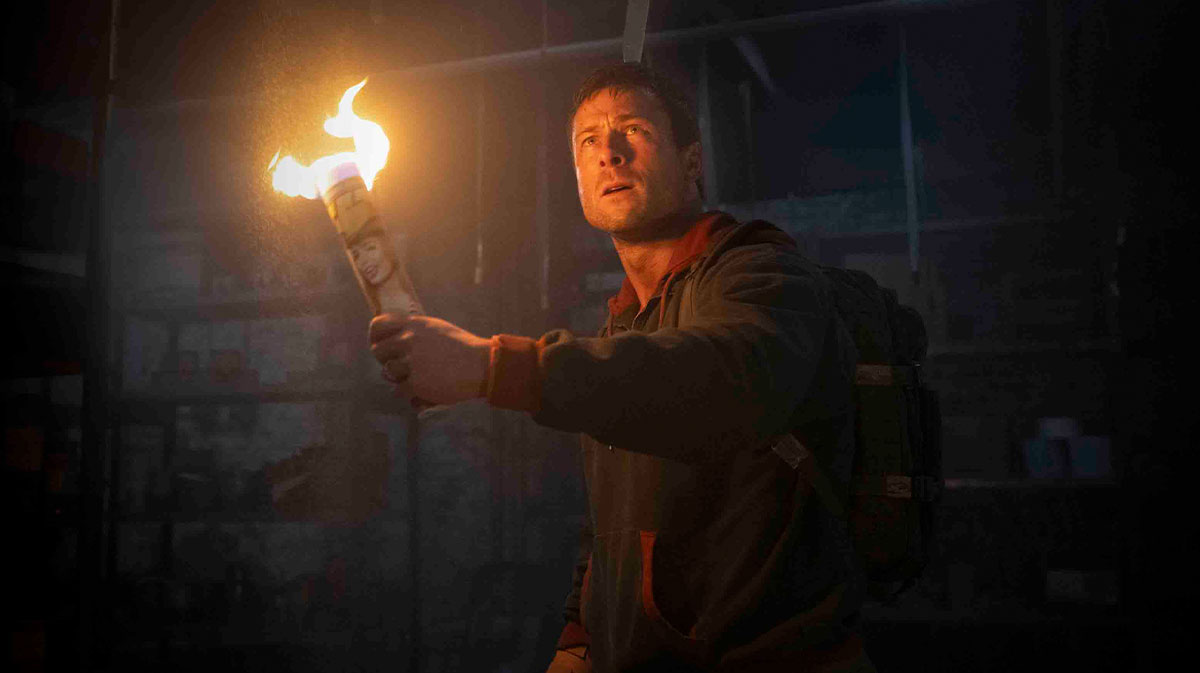
Plus, the story lends itself well to 2025. Killian compares the Running Man show to the Colosseum, as hundreds in-person and billions online (or on their Free-Vee) watch on.
The house always wins, as any gambler knows. And yet, some are gluttons for punishment. There's an addictive element to participating in the show, as contestants who last long begin losing their minds, as Richards shows.
Brolin was a brilliant choice for Killian. His slow cadence, which has made his characters in No Country for Old Men or the MCU spine-chilling, adds a sinister side to his character.
On the surface, the smiling Killian seems like a trustworthy TV producer who is concerned about his contestants' well-beings. That couldn't be further from the truth.
Like Dominigo, Brolin doesn't have a lot of screentime, but he makes the most of it when he has it. On the other side of Killian is the audience. Why do we, the viewers, like watching someone's livelihood at stake? It's a question other dystopian thrillers like The Hunger Games have touched on.
The Running Man also holds the producers accountable. It's show business, after all, and they want the juiciest show possible to air every night (which makes the Kardashian-like reality series Richards watches throughout an even more brilliant metaphor).
Should you watch The Running Man?
The Running Man is not only the definitive adaptation of King's book, but it's one of the best movies of the year. It's a thrilling watch, and Wright knocked it out of the park.
Powell once again shines in his latest leading role. He has become a chameleon, somehow being able to embody any personality he's asked to.
To his credit, Powell has avoided the Matthew McConaughey vortex since gaining fame. He isn't letting himself be typecast; his last role was on a TV streaming series. Now, he returns to the big screen with a bang.
While Powell's take on Richards is more sympathetic than how King wrote him, he still descends into madness. How could you not, given the fact that your manhunt is a spectacle to billions worldwide? By the time The Running Man reaches its third act, his outbursts are justified.
Everything, from the performances to the heart-pounding score composed by Steven Price, works. With more time, The Running Man may go down as Wright's best movie.
Wright and Powell are two sides of the same coin. Both have, like Richards, run away from conforming to the Hollywood system. Wright is one of the most unique voices in Hollywood, bringing his flair to every project. Powell is defining the standard of the new leading man.
Grade: A
The Running Man will be released on Nov. 14.

